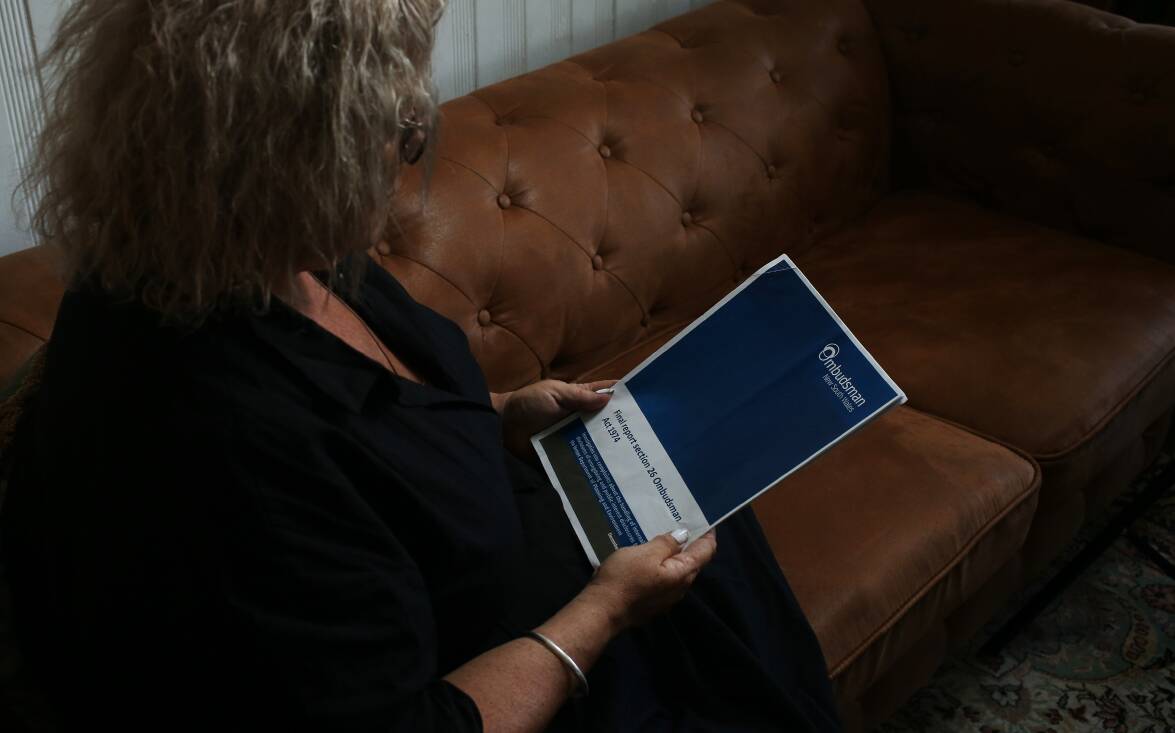
THE State Government has treated an investigation into the handling of corruption claims with contempt, critics say, failing to produce relevant documents and leaving "obvious gaps".
The NSW Ombudsman's investigation focused on the handling of public interest disclosures at the Maitland mining titles office between 2014 and 2018.
They involve allegations of serious and high-level corruption among senior public servants and mining agents representing major mining companies, and billion-dollar contracts.
The NSW Ombudsman was stymied by a lack of records produced by the department, which were "not sufficient to allow us to understand how the disclosures were received, handled and investigated" the report says.
The Department of Regional NSW, Mining, Exploration and Geoscience produced just 20 documents in response to the Ombudsman's first request for information.
A second notice, which "had to be issued because we did not receive all the documents that should have been produced in response to the first notice" turned up 151 documents not previously provided. Even with those documents, there were "obvious gaps", the report says.
The allegations came from Stockton-based whistleblower Rebecca Connor who was sacked in what she says was an act of reprisal because she "wouldn't play ball", as well as others who were also shown the door.
Ms Connor said she was suspended on November 10, 2017, a day after allegedly warning a senior manager to revoke a mining lease approval because it was unlawful.
Ms Connor's husband and former senior policeman Allan Connor said the department had treated the investigation with contempt.
"The NSW State Government and the department continue to cover up these issues," Mr Connor said, calling for the public release of the Ombudsman's report.
RELATED:
- Mining corruption claims 'never investigated', secret report reveals
- Mining companies 'too cosy' with staff, says whistleblower
-
Failures to investigate corruption claims slammed by NSW Ombudsman
Greens spokeswoman for Mining, Coal and Gas Sue Higginson has called for a "full open and transparent inquiry" while Lock the Gate Alliance National Coordinator Carmel Flint said the Ombudsman's findings undermined public faith in the regulation of mining.
The Department has been contacted for comment.
The Ombudsman's investigation found that files for previous, internal and external investigations, "consistently" did not have evidence such as records of interview, emails, and documents relied upon in the associated investigations reports.
In one instance, allegations that information was leaked to a mining company resulting in a significant competitive advantage were referred to the professional standards team to investigate. But there were "no documents showing the investigation was properly pursued, and no records explaining why not", the Ombudsman report says.
When that matter was referred to the Independent Commission Against Corruption (ICAC), it bounced back to the department to conduct an internal investigation.
Evidence from mining titles office internal systems experts showed the relevant information was not in the public domain at that time, and so had to have been leaked.
"However, the investigator determined ... there was no evidence of corrupt conduct, based on "an unsubstantiated claim by the competitor", the report says.
"The conclusion is difficult to understand, given the evidence the investigator had obtained."
Staff interviewed by the Ombudsman's team described the office as "an openly hostile environment" in which the major mining agents, who are named, control most of the applications.
"It was almost as if the titles team and the mining agents were part of the same company," the staff member interviewed said
"After we had a team meeting (they) would be on the phone asking question in relation to information that had just been discussed at the meeting."
Another review of DRG in 2019 included comments about the 2013 ICAC review and the investigation into the conduct of Ian Macdonald, Eddie Obeid Snr, and Moses Obeid and others.
"Staff speak openly about the dilemmas of balancing mining interests and yet living within a community where this is a key feature of their lives."
In August 2017, a plan was proposed to develop a fraud and corruption prevention strategy. While a fraud and corruption control policy was published, and the public interest disclosures policies and procedures were updated, it was "not clear what steps, other than these, were taken to develop the fraud and corruption strategy", the Ombudsman's report says.
Another plan was made to deliver "foundation ethos training" including corruption prevention and misconduct reporting training for staff, to be organised with the NSW Ombudsman's office and NSW ICAC. That was not delivered.
The report says that Ms Connor's claims that she was dismissed in reprisal by those named or implicated in her public interest disclosures were also not properly investigated.
Further to that, she was never given a copy of the public disclosures policy, there was no assessment of the risk of reprisal, and so she was not made aware, as was required, of the protections provided to whistleblowers under the act, including confidentiality and the protection against reprisals.
WHAT DO YOU THINK? Join the discussion in the comment section below.
Find out how to register or become a subscriber here.







